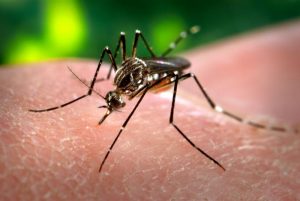
Source: NASA
There is almost nothing I’d rather be doing than going places all over the world. In fact, I am usually planning the next trip while I’m on the way home from the current one. And if you are fortunate enough to have the means and freedom to travel – this post is for you! (Important to note, I think, that not all people have the privilege of world travel due to lack of freedoms, economic realities, and so forth).
I think international travel is one way in which we can come together with people who are different than us. Learning other cultures, visiting other places, perhaps being the one in the minority (racially, culturally) in a strange new land. These are good for us. It’s hard to judge other people when you’ve visited their awesome country! I’ve met some of the most interesting, perplexing, lovely, hospitable people when abroad. And our Earth has the most breathtaking natural wonders!
Just for kicks – to get you thinking . . .
- What’s the weirdest place you’ve been to? I think for me it may be Cappadocia, in Turkey.

Photo: Benh LIEU SONG via Wikipedia Commons
- What’s your most favorite place to visit? Me: Paris. No contest

Photo: Benh LIEU SONG via Wikipedia Commons
- What’s the most life-changing place you’ve been to? Me: West Bank, Palestine. I’ll tell you about it sometime.

Sunset in the West Bank.
And I’m pretty sure I’m not alone in all this travel enthusiasm. In 2014, over 1.1 billion people traveled overseas to somewhere in the world. Billion with a B. Something like 8 million people fly every single day, spending $2.6 billion every day, or about $30,000 per second.
No wonder the TSA lines require patience of biblical proportions.

TSA line?
In this post I’m going to cover Travel Medicine and health. Read on for:
- General health tips prior to travel
- Links to resources for travelers. Look for the most important link below.
- A few disease-specific issues. Yes, I’ll talk about our new friend, Zika.
Here we go . . .
When I travel, I think I’m relatively adventurous. I’ll go nearly anywhere and eat nearly anything put in front of me. Tongue, anyone? And street food in Mexico is so tasty, you know. And the spicy noodles in Thailand. When in Rome . . .

Lovely Minnesota – best place of all!
But travel exposes us to risks that we may not encounter in our living rooms or front yards. Particularly here in Minnesota which admittedly is fairly free of awful diseases and dangers. There are advantages to living in the frozen tundra where the bugs and bacteria (and humans) have trouble surviving the winter. No Aedes aegypti in good old Minnesota!
OK, enough rambling about places I’d rather be right now. Let’s get practical
Travel medicine on Healthy Matters

Dr. Megan Shaughnessy at WCCO studios
Fortunately for would-be globe-trekkers, there is help for staying healthy. We talked it about Travel Medicine on last week’s Healthy Matters broadcast with my colleague and Infectious Disease specialist Dr. Megan Shaughnessy. She not only treats people with infections but she also sees patients in the International Travel Clinic at HCMC.
On the show, Dr. Shaughnessy told us about why people may wish to schedule a pre-travel visit. Listen to the podcast of the show to hear her yourself by clicking the Healthy Matters logo here. Perhaps listen to it while reading the rest of this post. Good idea, eh?
Planning ahead for that big world adventure
What did we learn about staying safe while traveling?
Planning ahead is important
The time to consider the risks of travel is well before you leave. Well, duh. For many destinations, that just means getting your passport ready and making sure your vaccinations are current. Places like Europe and much of Asia, Australia, and most of North and Central America fall into this category.
What are the vaccines that matter for travel? The two biggies that come to mind are:
- TDaP. This vaccine reduces risk for tetanus, diptheria, and pertussis (whooping cough). It is the one you should get at least every 10 years. If you are traveling anywhere, I’d make sure you are current. Tetanus is life-threatening. Here’s more than you ever wanted to know about tetanus.
- Hepatitis A. Say what? Hepatitis? But doctor (you may be saying), I don’t intend to be sharing any, ahem . . . body fluids (ew!) with anyone on this trip. Why do I need Hepatitis shots? Well here’s the real deal. Hepatitis A is transmitted through food and water, not needles and sexual contact and all that. (It is Hepatitis B and C that are transmitted by those methods). So you are vulnerable to Hepatitis A just about anywhere you may be eating (even Minneapolis). Hepatitis A is a 2-shot series, 6 months apart. But you can get the first one a few weeks before you go on your trip, which will provide some protection. You can get the 2nd shot when you return for lifelong protection. Here is reliable information about the Hep A vaccine from the CDC. I’d even get it if you are traveling within the US.
Of course, all this assumes you have had the usual childhood vaccines. Measles, mumps, rubella (MMR), polio, and so forth. And always get an annual flu shot.
Traveler’s diarrhea
It really doesn’t matter where you go or what you do, you may experience some, let’s say, gastrointestinal unpleasantness when you travel. This is because your gut is used to the bacteria where you live. When you go elsewhere, you are picking up bugs and toxins and who-knows-what from the food and water you ingest. It is a sad fact that many parts of the world do not have access to clean food and water supplies. (Side note: rich countries, can’t you do something about that?).
I remember being in a Central American country in about 1984 with the worst traveler’s bug I can imagine. I was awake for about 48 hours straight, basically getting dehydrated and spending an awful lot of time moaning and running to the restroom. It is emblazoned on my memory.
So if you get traveler’s diarrhea, you may be glad you had a short supply (usually just a single dose!) of an antibiotic with you. Another good reason to visit a Travel Clinic.
What about picking up some nasty disease while abroad?
Good question. So this is where you really have to get specific information about your destination. It is a fact of life on planet earth that many infectious illnesses are endemic to many places. The good news for travelers is that there are preventive measures you can take to reduce your risk. Notice how I say “reduce your risk” and not “prevent”? You can never 100% prevent something!
Here is a partial list of illnesses for which you can get a preventive measure (a shot or a pill, usually):
- Measles
- Yellow fever
- Typhoid
- Malaria
- Rabies (Dr. Shaughnessy talked about rabies on the radio show. Stray dogs are common around the world, and probably were not vaccinated for rabies like Fido in your living room).
- Hepatitis A
- Hepatitis B (there is a vaccine for this bug which is transmitted via blood- and body-fluid, so if you are at risk for those things, get the vaccine).
And unfortunately, here is a list of illnesses for which there is NO vaccine or medication that you can take to reduce your risk:
- Tuberculosis
- Dengue
- Chikungunya (yes, that’s a real disease)
- Zika
- HIV
- Ebola
- Plague (yes, plague still exists, and no, there still isn’t a vaccine)
So these lists are NOT all inclusive, just a few of the common ones. For specific diseases that concern you, click on this reliable info from the CDC, diseases A to Z. Which begs the question, how in the heck do you know what you need to get?
Answer is easy. Two options: Visit a travel clinic (like the HCMC one Dr. Shaughnessy works at) and/or visit the Centers for Disease control website. This is the most important site on this blog post for this topic. If you are traveling, at least check out this site.
Click here –> CDC Travel site
The Disease du Jour: Zika

Public enemy #1
I’ll finish up with a bit about the bug we all love to hate. Zika. This one is actually a bit concerning, for a few reasons. These are my own personal thoughts, nothing official:
- Reason 1 that Zika is concerning: People infected by Zika are often free of symptoms. Any time a communicable illness can infect a person without him/her being aware of it, it is trouble since they can they transmit it to others. Fortunately, Zika is mostly transmitted by the bite of our villians, the Aedes aegypti mosquito and its cousin, Aedes albopictus. However, Zika can be transmitted sexually, so if a person doesn’t know he/she has it . . . transmission can occur.
- Reason 2 that Zika is concerning: The most devastating effect of Zika is on unborn fetuses since it can lead to defects in the development of the central nervous system (brain). So being pregnant, usually such a happy time for women, can be catastrophic.
- Reason 3 that Zika is concerning: There is not yet a vaccine.
- Reason 4 that Zika is concerning: People travel by the billions every year, including to areas where the virus-carrying mosquitoes are prevalent. This means spread is really a possibility.
- Reasons 5 that Zika is concerning: Hundreds of millions of people live their ordinary lives amid the mosquitoes that carry it. You cannot help but despair for the people of, say Brazil. This hits them way harder than any of us who are just traveling.
OK so those bullet points were depressing.
But there is hope on the Zika front.
- Vaccines are in development and we are smart enough to create one. Problem is, do we have the political will to act? United States Congress, are you listening?
- Usual mosquito prevention techniques are pretty effective. Mosquito repelent does work for the most part.
- For the vast majority of people who do get Zika, the symptoms will be mild or even absent.
- For many of us in the US, the mosquitoes that carry Zika are not present where we live. See my Minnesota comments above! But as we talked about on the radio show, it is entirely possible that the nasty little Zika virus will arrive in Florida at some time.
For good information on Zika, including videos, prevention, what our government is doing, click here. Thank heaven for the CDC.
This was an odd post
As I review what I’ve written in this post, I realize it is a rather odd mishmash of stuff. Part travelogue, part medical information, partly me longing for places far away. I hope you found something helpful. If nothing else, check out the CDC Travel site before you go anywhere.
And listen to Dr. Shaughnessy on the podcast. She’s good.
Have a thought you’d like to share? Click “Leave a comment” below.
Bon voyage!
David

